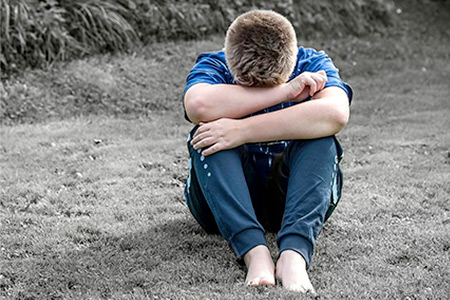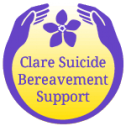We accompany bereaved children as they journey through grief.
Children are surprisingly Resilient.
Children have a right to Grieve.
Children deserve the same Respect as adults.
Most younger children are aware of death even if they do not understand the finality of it. Experiencing grief is a different and often confusing experience for children. As parents and carers you cannot protect your child from the pain of loss, but you can help them feel safe and allow them to express their feelings.
It is important to acknowledge their loss, otherwise a child can feel excluded. Older children often have very strong feelings, including guilt, so we have to help them deal with that and through that. They can also get very anxious about their own future and the future of other people, as they recognise their own vulnerability and the vulnerability of others in their lives.

Breaking the News - Telling the Truth

Honest and truthful communication shared in a loving and caring way helps a child to deal with, and recover from, the traumatic experience of learning that a loved one has died by suicide. It is better for children to hear the truth from people who love them.
The key is to share the truth gradually but always with respect to the age and development of the child. Gradual disclosure allows the child to ask questions and talk about worries as they arise. It also enables them to embrace the sadness of never seeing their loved one again.
A very young child may be satisfied with the fact that the relative had an accident and because of it, died. However, an older child may need to know more details and will usually ask if they do. In answering, it is important to be as honest as possible by stating the facts as known.
The pace of telling a child will also be affected by the situation e.g. the possibility of the child finding out what has happened from other sources or from older members of the family.
A parent or carer may want to ask a child if they would like to know more details and then be guided by their response.
If a child says they don’t want to hear more just now, they need to know they can come back to parent or carer for more information.
If a parent or carer feels a child cannot handle any more information at the moment, it is important to tell the child that you will tell them more on another occasion – and to do this.
Children will have the same range and intensity of emotions as adults and will probably need help noticing and expressing their emotions. They may become angry, and afraid for other family members. Small children often quickly return to playing or carrying on as normal, moving rapidly from great distress to physical activity, for example (sometimes called ‘puddle-jumping’). This is typical for their age.
If a child appears to be distressed for a long time – frequent outbursts, sleep disturbance or withdrawn behaviours, seeking professional support helps.
People who love them will reassure them that the death was not their fault. A parent may find themselves challenged by their child’s questions. It is good for parents and carers to get support.

Clare Suicide Bereavement Support offers befriending support to children and young people,
their parents and carers.
You are not Alone has some ideas about telling a child on pages 9 to 11. Read Here.
Help is at Hand may be helpful, especially pages 38 to 41. Read Here.
The following site about loss and grief for children has lots of helpful information and guidance
to support children and young people through bereavement. Read Here.
